
Rozanolixizumab demonstrated efficacy in patients with generalized myasthenia gravis aged at least 65 years, despite a higher incidence of comorbidities observed in this population.

Rozanolixizumab demonstrated efficacy in patients with generalized myasthenia gravis aged at least 65 years, despite a higher incidence of comorbidities observed in this population.
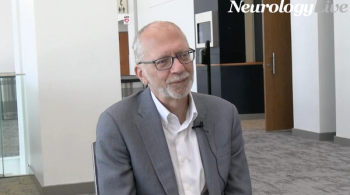
The Meta A. Neumann Professor of Neurology at George Washington University provided an overview of a new phase 3 study testing the efficacy and safety of cladribine versus placebo in generalized myasthenia gravis. [WATCH TIME: 3 minutes]

Pozelimab and cemdisiran work together to block the complement pathway, which plays a key role in gMG, using two different approaches—one suppresses liver production of a key protein, while the other targets it directly with antibodies.

Zilucoplan, approved for generalized myasthenia gravis in 2023, showed consistent complement inhibition, even with additional treatments like IVIg or plasma exchange.
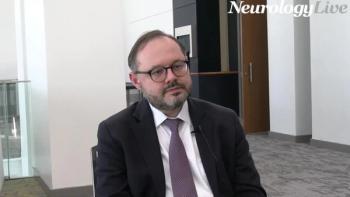
The director of the myasthenia gravis clinic at Yale University provided clinical insight on promising phase 3 data assessing inebilizumab, an FDA-approved therapy for NMOSD, in patients with myasthenia gravis. [WATCH TIME: 4 minutes]

A new analysis of the phase 3 PROPEL study showed that switching to cipaglucosidase alfa/miglustat therapy enhanced outcomes among patients with late-onset Pompe disease.

Using data from observational studies, a recent meta-analysis offered a comprehensive overview of the risk profile of cardiovascular comorbidities in patients with myasthenia gravis.

A new study presented at AANEM 2024 revealed that daily dosing of oral edaravone was well tolerated and did not reveal any new safety concerns in patients with amyotrophic lateral sclerosis.

Long-term use of ravulizumab in patients with generalized myasthenia gravis led to a significant reduction in corticosteroid dependence, highlighting its potential steroid-sparing benefits.

Jonas Hannestad, MD, PhD, chief medical officer at Gain Therapeutics, provided clinical perspective on promising data from a phase 1 first-in-human study of GT-02287, an investigational therapy for Parkinson disease with or without a GBA1 mutation.

Over an 18-month period, patients showed strengthened scores on Rasch-built Overall Disability Scale, a patient-reported outcome measure of activity and social participation.
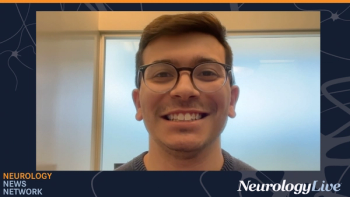
Neurology News Network. for the week ending October 12, 2024. [WATCH TIME: 4 minutes]

After 52 weeks of treatment, no significant differences were found in cardiac MRI measures such as ejection fraction, end diastolic volume, or circumferential strain between the two groups.
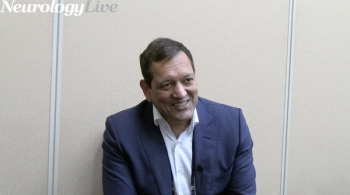
The chief medical officer and chief development officer at BlueRock Therapeutics discussed the promise behind bemdaneprocel and its unique mechanism of action relative to other Parkinson disease treatments. [WATCH TIME: 3 minutes]

Erik Musiek, MD, PhD, a professor of neurology at Washington University in St. Louis, provided clinical insight on a presentation from ANA 2024 highlighting the intricate relationship between circadian rhythms, glial activation, and neuroinflammation in Alzheimer disease.

The postdoctoral research assistant at Charité University Berlin discussed how the new diagnostic criteria for multiple sclerosis could offer earlier detection, especially in those with overlapping autoimmune conditions, through advanced imaging markers.
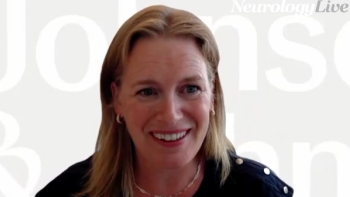
The disease area stronghold leader in neurodegeneration at Johnson & Johnson discussed data presented at AAIC 2024 highlighting different subtypes of Alzheimer disease that may lead to more personalized treatments. [WATCH TIME: 4 minutes]

Michelle Bravo, MD, an assistant professor of clinical neurology at the University of Miami, provided commentary on a rare case report of a subdural hematoma linked to spontaneous intracranial hypotension caused by a refractory CSF leak.
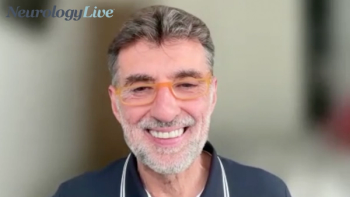
The chair of neurology at Hospital Universitari Vall d’Hebron talked about the revision of the MS diagnostic criteria that will integrate new evidence, biological markers, and advanced MRI findings to enable earlier and more precise diagnoses. [WATCH TIME: 4 minutes]
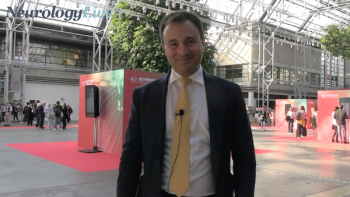
The assistant professor at the University of Naples discussed how implementation of new diagnostic criteria for multiple sclerosis will involve practical adjustments in imaging and diagnostic techniques as well as cultural changes in clinical practice. [WATCH TIME: 4 minutes]
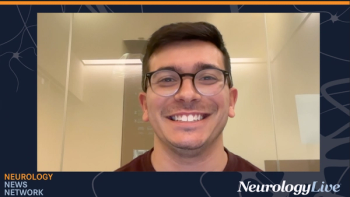
Neurology News Network. for the week ending October 5, 2024. [WATCH TIME: 4 minutes]

Over a 12-month period, patients showed sustained improvements in disease progression through valbenazine, regardless of concomitant antipsychotic treatment.

Mind Moments®, a podcast from NeurologyLive®, brings you an exclusive interview with Daniel Ontaneda, MD, PhD. [LISTEN TIME: 27 minutes]
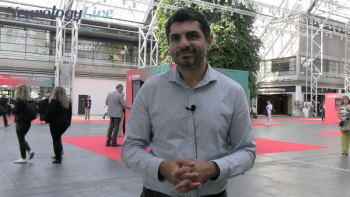
The neurologist at the University Hospital Center of Nice discussed whether radiologically isolated syndrome represents a pre-symptomatic phase of multiple sclerosis based on a hot topic session held at the 2024 ECTRIMS Congress. [WATCH TIME: 4 minutes]
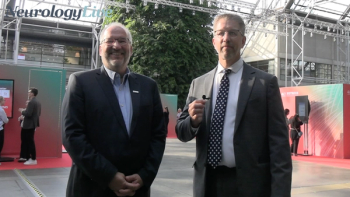
A duo of experts talked about a positive phase 2 trial of vidofludimus calcium, demonstrating reductions in serum neurofilament light levels and potentially slowing brain atrophy in patients with progressive multiple sclerosis. [WATCH TIME: 4 minutes]

This trial aims to explore the role of the noradrenergic system in behavioral and cognitive outcomes and could lead to new therapeutic strategies for managing PSP.

ION464 is designed to inhibit the production of the alpha-synuclein protein, aiming to reduce the accumulation of this protein in the brain, which is believed to be a key factor driving neurodegeneration in MSA and Parkinson disease.
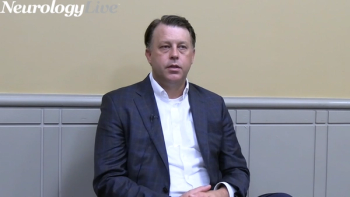
The director of the Huntington’s Disease Clinic at Vanderbilt University Medical Center gave commentary on the unique development of ATH434, its ability to target iron accumulation, and how it may slow disease progression in multiple system atrophy. [WATCH TIME: 3 minutes]

The consultant neurologist and senior lecturer at St. Georges Hospital in London, provided commentary on the diagnosis, management, and future research around neuropsychiatric symptoms of Parkinson disease.

A recent survey showed that patients with Parkinson disease quickly adapted to using continuous subcutaneous apomorphine infusion therapy, with high amount of recommending the device to others.